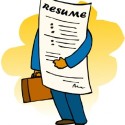
Over forty job seekers want to be able to compete on equal footing with younger candidates. Many are concerned that their years will show through their resume, and that employers might overlook them during the initial screening process. Those who possess strong knowledge, skills and experience are very marketable, but they need to first get to a face-to-face interview where they can “sell” their value to an organization.
Good news! In today’s resume game, a new guideline has emerged that is to the benefit of older workers: You are no longer obliged to list all of your jobs back to when you left school. It is now considered acceptable and sufficient to cut off your information after going back 10 to 15 years. This means that for most of us over forty, we can eliminate jobs prior to 1995, if we choose. If you had an employment change between 1990 and 1995, for instance, you can stop there.
But you thought that a potential employer needed to see your entire job history… Well, they do, but they can get all the information from the early years when you fill out an application. Remember: since you are not usually asked to fill out an application form until you come in to interview, you need not worry – you already reached the goal of a face-to-face meeting!
The exception to this is if you were with the same employer for a very long time. If you were employed by a company for 32 years for instance, you will need to put the full time frame on your resume. For example, ABC Company, 1973 – 2005. Since you cannot cut off your resume information in the middle of an employment experience, consider using a functional format. That way, the potential employer will get to see and be impressed by your accomplishments before they see your tenure.
There are several other ways that an experienced worker can legitimately diminish years from their resume and cover letter presentation. Here’s how:
- Go to the book store or library and find a couple of books on contemporary resume writing. Today’s resumes do not (and should not) look like they did ten or more years ago. Study the different styles and decide which fits best for your background and job goals.
-
In your cover letter, do not say that you have 37 years of experience in your field. If you have 16 to 30 years of experience, say that you have over 15 years of experience; if you have 30 or more years, say that you have over 20 years of experience, and leave it at that. Those statements are truthful, without being detailed.
-
Do not start a cover letter with “Dear Sir” or “Dear Gentlemen” when you do not know the gender of the recipient. To make the assumption that the hiring authority is male is a tip-off that you are not with the times – it is also offensive to women who have worked hard to earn those positions of responsibility. Try “Dear Hiring Manager” or “Dear Recruiter” if you do not know the name of the recipient.
-
Unless you are a die-hard traditionalist, try creating a heading other than the standard block format for your name, address, and phone number. The current models in the resume books will offer some fresh, new contemporary ideas for your heading.
-
Consider starting with a summary, instead of an objective. This is more frequently utilized today, because it is much more informative. Essentially, a summary focuses on what you offer the employer, instead of what you want in your career
-
Define your work experience from your accomplishments, not from your former job description. “Responsible for ….” states what you were supposed to do in your job, not how well you did with it. Today’s employers want to know how you made a difference. Accomplishments will put a qualitative and quantitative aspect to your presentation.
-
Do not put the year you graduated from high school or college. Previously, this was a dead give-away: subtract the education date from today’s date; add 20 years and the reader could estimate your age pretty easily.
- Never put your age or date of birth on the resume. This used to be a regular practice and came under the old category of “personal information”, which now should be deleted altogether. Age, height, weight, marital status or number of children should not be given, either, as they have nothing to do with your ability to do a job.




